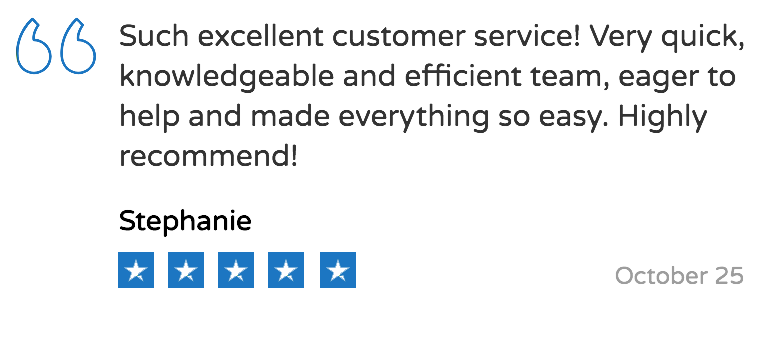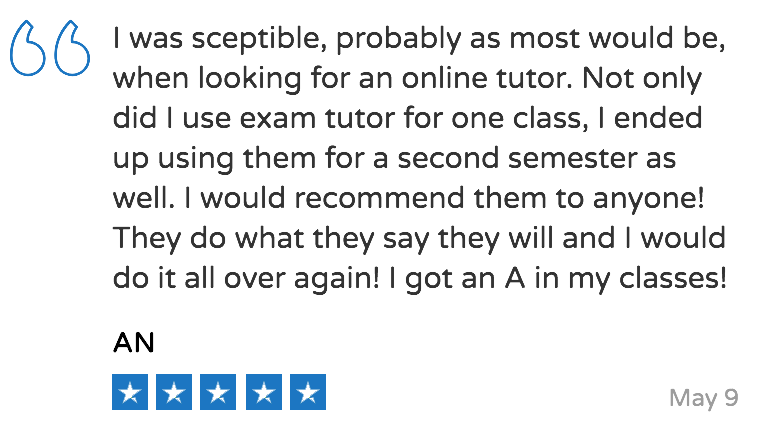Your
6+ Years Acing Homework | 350k+ Happy Students
- Homework
- Assignment
- Quiz
- Test
- Proctored Exam
- Essay
- Project
- Full Online Class
Get Homework Help on These Platforms
We have extensive experience doing homework for students on these online platforms boosting your grades
- Canvas
- Backboard
- Pearson MyLab
- MyMathLab
- MathXL
- WebAssign
- MyOpenMath
- ConnectMath
- HawkesLearning
- Connect
- Aleks
- D2L (Desire2Learn)
- Cengage
- Moodle
- WileyPlus
- MacGraw-Hill
- Straighterline.Com
- Sophia.Org
- Study.Com
- Many Others
10 Ways to Make Online School Less Lonely
Feeling isolated in the digital classroom? You’re not alone. Online schooling can sometimes feel like you’re adrift in a sea of webinars and discussion boards, but it doesn’t have to be a lonely journey. With the right strategies, you can create a vibrant, interactive learning environment that not only enriches your education but also fosters a sense of community.
From connecting with classmates to personalizing your study space, there are plenty of ways to combat the solitude of online learning. And hey, if you’re ever in a pinch with assignments or a looming deadline, remember, it’s okay to seek help. Hiring someone to assist with an assignment can be a smart move, ensuring you stay on top of your game without feeling overwhelmed. Let’s jump into making your online school experience as engaging and connected as possible.
Hundreds of online class help reviews

Virtual classes, real friendships.
Connect with your classmates
Engaging with your classmates plays a critical role in reducing the loneliness associated with online schooling. It’s about building a community even though the lack of physical presence. Here’s how you can foster connections and make your virtual educational experience feel more inclusive.
Start Virtual Study Groups Sometimes the thought of reaching out can be daunting, but small steps can lead to significant strides in forming connections. Why not initiate or join a virtual study group? These groups become a hub for sharing knowledge, discussing course material, and providing mutual support.
Why Are Online Classes Harder?
–Leverage Technology There’s a plethora of tools at your disposal to stay connected. Platforms like Zoom or Google Meet are excellent for video calls and screen-sharing during group study sessions. While tech can’t replicate the warmth of in-person interaction, it surely bridges the gap between you and your classmates. Engage in Class Discussions Participation is key. Engage actively in online forums and discussion boards your course might offer.
- Ask questions
- Share insights
- Provide feedback to your peers
Engagement encourages a shared learning environment that’s lively and interactive.
Organize Social Events All work and no play can dampen anyone’s spirit. Organize casual online meet-ups that are not study-related. For instance:
- Virtual movie nights
- Online gaming sessions
- Group chats on social media
These events can help build rapport and cultivate a sense of belonging.
Remember, it’s about the quality of connections, not just the quantity. Even one or two meaningful relationships can significantly enhance your online school experience. Give yourself permission to take the initiative and you’ll see the impact it can have on your educational journey.
How Successful Is Online Schooling? Engagement & Support Strategies
Establish a study routine
Creating a solid study routine is crucial when tackling the sense of isolation that can come with online schooling. Think about it—having a structured plan for your day-to-day activities can foster discipline and predictability, reducing the chances of feeling adrift in a digital sea. So how do you get started?
First, pinpoint the times of day when you’re most alert and productive. Are you an early bird who’s most efficient in the morning, or do you find your stride in the quiet of the night? Align your study sessions to correlate with these peak times.
Secondly, carve out a dedicated study space. This doesn’t mean you need a lavish home office—a corner of your bedroom or a spot at the kitchen table can work just fine as long as it’s consistently earmarked for your studies. This physical space helps mentally signal it’s time to focus.
Next, create a routine that mirrors a typical school day. This could look something like:
- Logging onto your learning platform to check for announcements or new assignments
- Attending virtual lectures or classes
- Scheduling breaks similar to school recesses for snacks, stretching, or a quick walk
- Allocating specific hours for different subjects or projects Your routine should include time for breaks. Regular intervals to disconnect are essential to avoid burnout and keep your mind fresh. Treat these breaks as seriously as your study time—they’re both critical to your academic success.
Balance your study routine with opportunities to connect with others. Alternate solo study sessions with collaborative activities like:
- Virtual study groups
- Online forums related to your course
- Group project work sessions
You’ll notice that by slotting in these elements into your daily routine, not only does your sense of structure improve, but your opportunities for socializing and combating loneliness increase as well. Remember to reach out to classmates for joint study sessions—collaboration can break the monotony and inject new perspectives into your learning process.
Participate in online discussions and forums
Engaging in online discussions and forums can significantly reduce the feeling of isolation in an online school setting. When you immerse yourself in dialogues with classmates, you’re more likely to feel connected, even though the digital divide.
Start by introducing yourself in course discussion boards. A simple post about your interests, goals, and what you hope to gain from the class can spark connections. Don’t hesitate to respond to others’ introductions as well—this is the first step in forging a virtual camaraderie.
Look for topics that ignite your curiosity or relate closely to your own studies within the forums. Actively participating in these conversations allows you to share your insights, ask questions, and provide support to your peers. Through this, you’re not just learning—you’re also building a supportive network.
Here are some actionable steps you can take:
- Post at least one discussion thread per week related to the course material.
- Respond promptly to classmates’ queries or discussion points.
- Offer to help others who might be struggling with course concepts.
Plus to your course’s official channels, expand your network by joining external educational forums. There are plenty of platforms where you can discuss academic challenges, share resources, and collaborate on projects. Also, while some students might consider seeking assistance with complex assignments by hiring help, remember, discussions and forums can also provide valuable insights that might aid with your coursework.
- Engage with subjects that are particularly challenging – Share study resources or articles you’ve found helpful
- Seek advice from classmates who excel in topics you’re grappling with
By participating in these discussions, not only will you gather diverse viewpoints on subject matters, but you’ll also be able to give and receive academic support, which is a cornerstone of a thriving educational community. Connecting through these channels enriches your learning experience and mitigates the feelings of loneliness inherent in a virtual classroom.
Utilize video conferencing tools
In the quest to make your online school feel less lonely, video conferencing tools stand out as your digital bridge to human connection. You’ve already taken steps to engage through discussion forums and virtual events; now it’s time to elevate your interaction with video calls. These platforms can simulate the face-to-face experience, which is pivotal in fostering relationships.
Got a study session coming up? Why not make it a video call? Platforms like Zoom, Skype, and Google Meet enable you to see your peers, which can make a huge difference in building rapport. There’s nothing like matching faces to names to remind you that you’re not alone in this.
When you’re utilizing video conferencing, remember these tips:
- Test your tech before meetings. Ensure your microphone, camera, and internet connection are working properly.
- Use virtual backgrounds if you’re worried about privacy or want to minimize distractions.
- Be present. While it’s easy to multitask during video calls, giving your undivided attention can improve engagement.
Video conferencing is just one piece of the puzzle. To feel truly connected, initiate regular video meetings for different purposes:
- Weekly study groups to tackle tough topics
- Social hours for informal chats and games
- One-on-one sessions to get to know classmates better
Encourage your instructors to incorporate more live video sessions, too. This could include:
- Office hours for academic help
- Live lectures to replace some pre-recorded materials
- Feedback sessions to discuss your progress
These approaches humanize the online education space, reminding you that there are real people behind the screen names. With live interactive elements, your virtual classroom becomes a thriving community where everyone supports each other’s success.
Personalize your study space
Creating a study space that feels comfortable and uniquely yours can significantly enhance your online learning experience. Personal touches not only make the area more inviting but also help in reducing feelings of isolation. Here are some ways to tailor your study space to your needs:
- Choose the right location: Find a quiet corner that you can associate with studying and productivity. It’s important that this space is separate from areas where you relax or sleep to maintain a clear distinction between work and leisure.
- Make it comfortable: Invest in a comfortable chair and desk set up to support good posture during long study sessions. Discomfort can distract you, so make sure your physical environment supports your learning.
- Add personal items: Decorate your space with items that make you feel at ease. This can be anything from family photos to inspirational quotes or a plant. These small touches will help you feel connected and less alone.
Incorporate Technology to Stay Connected
Technology is your ally in fostering connections during online schooling. Here’s how you can leverage it to diminish feelings of isolation:
- Headphones with a microphone: Good audio equipment can make virtual interactions feel more real and less strained.
- Webcam: A quality webcam ensures that you and your classmates can see each other clearly, which adds a layer of personal connection to your interactions.
- Collaborative tools: Use apps and software that allow you to work collaboratively on projects or study together in real-time, like Google Docs or Trello.
Organize and Customize
Your study space should also marry organization with personalization:
- Organizational tools: Use calendars, planners, or digital apps to keep track of assignments and deadlines.
- Customized layouts: Arrange your desk and tools in a way that’s intuitive to you and maximizes the use of the space. Use color-coding or labeling systems if they help you stay organized.
Remember, your online schooling experience is yours to shape. By personalizing your study space, you’re creating a conducive environment for learning, which can play a key role in keeping loneliness at bay during your educational journey. Connecting with peers and instructors adds a community feel, but grounding yourself in a space that reflects your personality and needs puts you at the center of your educational experience.
Seek support when needed
At times, online schooling can lead to feelings of frustration or confusion with the material at hand. When this happens, it’s vital you seek out support. There are numerous ways to receive help, and even getting someone to assist with your assignments, quiz, test, exam, assignment, project, or class is an option if it means keeping up with your academic responsibilities.
Explore All Sources of Help
Keep in mind that support comes in many forms:
- Tutors: Many organizations and even peers offer tutoring services, either paid or volunteer-based.
- Academic forums: Websites that focus on academic help can provide answers and explanations to tricky questions.
- Instructor office hours: Use your teacher’s office hours for one-on-one help; they’re there to assist you.
Use Academic Services
Don’t hesitate to use available services when you’re stuck. Sometimes, hiring someone to assist you with your coursework can be a lifeline. Doing so can provide the following benefits:
- Expert assistance: A knowledgeable person in the subject can offer insight and clarification.
- Time management: Delegating some tasks gives you more time to focus on other important coursework.
- Stress reduction: Knowing a portion of your workload is managed can lessen anxiety.
When looking for someone to help with academic tasks, here are a few tips:
- Ensure they are credible and have a proven track record.
- Look for reviews or testimonials from other students.
- Communicate clearly about what’s expected.
Remember, seeking help isn’t a sign of weakness, but rather a smart strategy for exploring the challenges of online learning.
Academic Support Communities
Engage with online communities that focus on academic success. Here you’ll find peers willing to exchange notes, discuss complex topics, and offer moral support. Platforms like Discord or Reddit have dedicated groups for almost every subject imaginable.
Peer Support
Don’t overlook the value of connecting with classmates. They’re in the same boat and can relate to your struggles. A simple message to a peer can lead to a supportive study partnership or even friendship.
By taking these proactive steps, you’ll not only combat loneliness but also enhance your academic prowess. With the right support, online school becomes less daunting and more engaging.
Conclusion
You’ve got the tools to tackle the solitude of online schooling head-on. By fostering connections with your classmates, diving into discussions, and personalizing your study space, you’re on your way to a more engaging and less lonely learning experience. Remember, it’s about making the most of technology to build a supportive community and finding a routine that works for you. Stay proactive and reach out for support when you need it. With these strategies, you’ll not only combat loneliness but also set yourself up for academic success. Keep pushing forward—you’ve got this!
REQUEST A QUOTE Chat, Text or Email Us and Get a Quote Within Minutes
Order NowThe difficulty of a subject can be and is a big challenge for students. When concepts are hard to grasp, especially in subjects like advanced mathematics or statistics, these students see no other choice but to reach out to websites that provide homework assistance. This is especially the case with students that are taking their classes online who are missing the study group experience with their peers or hearing an in-person lecture on campus.
An overwhelming workload from multiple classes can make it challenging for many students to dedicate the necessary time and energy to all those homework assignments. When faced with deadlines for essays, projects and exams all due around the same time, the pressure can easily push students to hire someone to do that coursework. It is easy to assume that students can handle everything, but when faced having to free up countless hours to manage a heavy workload, the time is just not there.
Stress and anxiety about meeting fast approaching deadlines can be extremely overwhelming for students. The fear of not having studied enough to pass that test or exam when faced with increasing performance expectations by the academia can be paralyzing. This can lead to a situation where students feel that the only way to make it through is by paying someone to do their homework and make it one step closer to graduation.
A lack of time is another major factor driving students to outsource their homework. Busy schedules filled with extracurricular activities, part-time jobs, and family commitments can leave little to no room for homework and exams. This lack of available time is particularly challenging for college students who are trying to balance overwhelming academic responsibilities with personal development and a fulfilling social life. There are many aspects of life that are more important and hiring homework help services is the better alternative for achieving a balance.
Real Customer Reviews













